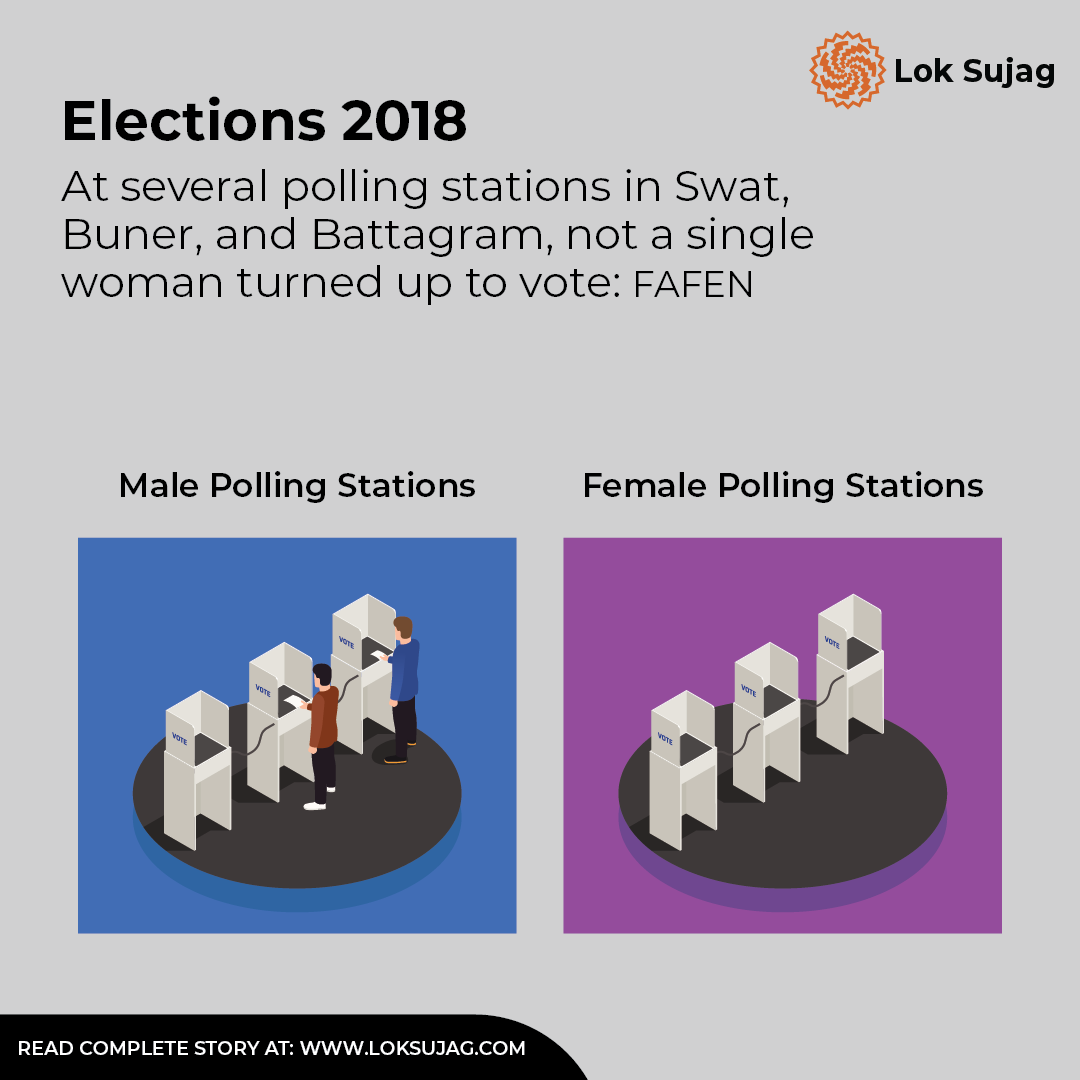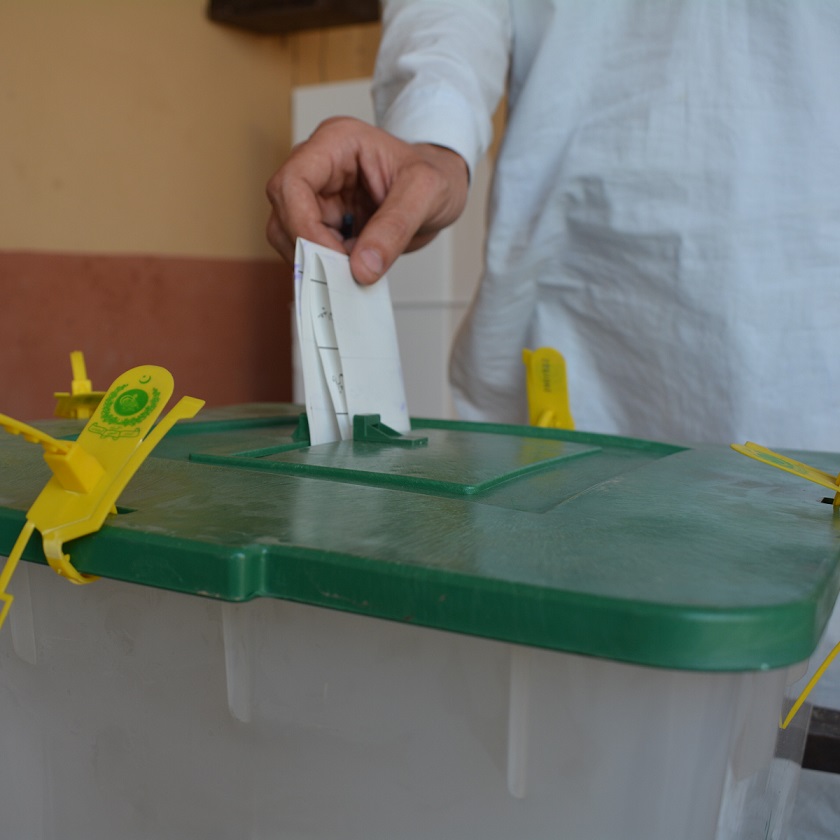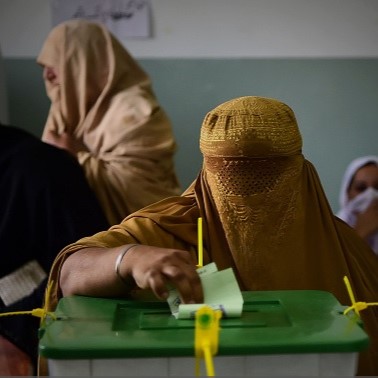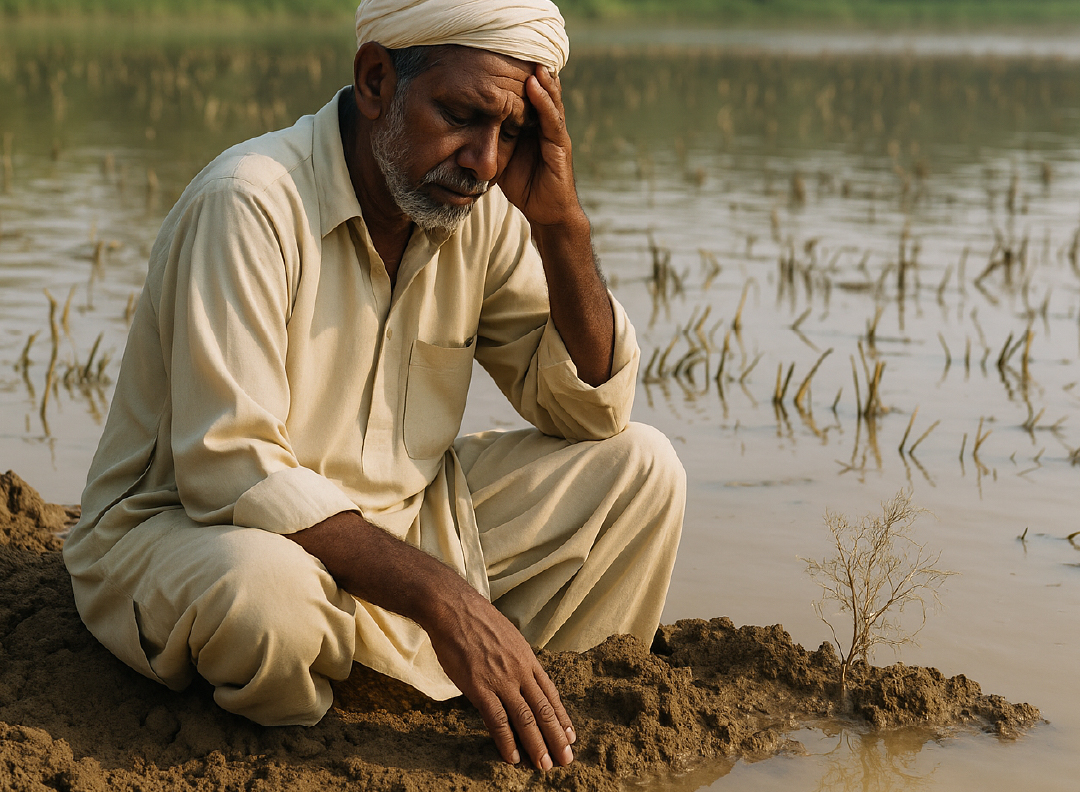The Election Commission of Pakistan (ECP) is preparing for the upcoming general elections in the country. Political alliances are forming, but political parties face major challenges to advancing the democratic processes, including the need to convince women voters to participate in the polling process.
In the 2018 elections, the ECP declared the election result of Shangla’s provincial constituency (PK-23) null and void due to a low voter turnout among women. A re-polling took place in this area as the participation of women voters was only five per cent.
According to electoral laws, a minimum of ten per cent of women must participate in voting within a constituency. In the 2018 elections, as reported by the Free and Fair Election Network (FAFEN), approximately 56.07 per cent of men and 46.89 per cent of women, on the whole, exercised their voting rights. The Aurat Foundation notes that the voter turnout for women in Khyber Pakhtunkhwa was approximately 35 per cent.

As per the FAFEN report, the voter turnout of women at polling stations was below 10 per cent in 34 stations in Swat, 25 stations in Buner, and 23 stations in Battagram. At several polling stations, not a single woman cast her vote.
A similar situation was noted in the district of Shangla, where ninety per cent of the population resides in remote mountainous areas. Most men are engaged in mining, working as labourers in coal mines nationwide. Educational facilities in this area are limited, resulting in a literacy rate of only 25 per cent.
According to recent census data, the total population of Shangla is approximately nine hundred thousand. In the district, whether in municipal elections or any other general assembly elections, there has never been a female candidate on general seats. The majority of women do not participate in voting.

In the last general elections, the overall turnout in Shangla’s National Assembly seat NA-10 was 34.34 per cent, with women’s voter turnout recorded at 9.87 per cent. Due to this low participation among women voters, re-election was required for this seat, and a Pakistan Muslim League-Nawaz (PML-N) candidate, Ibadullah, emerged as a Member of the National Assembly (MNA).
According to the ECP, in the provincial constituency PK-24, out of 75,321 registered women voters, only 10,278 votes were cast, indicating a women’s voter turnout of 13.65 per cent.
In last year’s elections in PK-23, with over two hundred thousand registered voters, approximately 70,000 votes were cast, resulting in an overall turnout of 34.86 per cent for this constituency. However, the turnout among women was only 5.02 per cent, with 3,505 women casting their votes.
The ECP nullified the results and conducted a re-poll in this constituency. The overall turnout was lower than before, standing at 27.8 per cent. However, the election was deemed complete, with women’s voter turnout at 11.2 per cent.

Adnan Munir, an advocate for women’s rights and resident of Alpuri in the Shangla district, states that before 2018, political parties and independent candidates frequently collaborated to deny women their right to vote through consensus decisions.
“They would convene and agree that there would be no polling for women.
“Consequently, the polling staff would spend the entire day anticipating women voters, only for the polling to close in the evening with zero votes from women.”
Munir says that when achieving a ten per cent women’s voter turnout became mandatory in the last election, a competition ensued between the PML-N and Pakistan Tehreek-e-Insaf (PTI). Both candidates strategically organised women’s polling in specific areas, preventing the nullification of results for both a national and a provincial seat.
Sumaira Khan, a Besham resident and a school teacher, has served as a polling officer in general and local body elections. She says that many women turned out to vote during local body elections, making it challenging to manage. However, in general elections, only a few women visited the polling station.

She says that in local body elections, most women come out to vote for their relatives or candidates from their community. But in general elections, the local representatives and party candidates often do not encourage even the women in their households to cast their votes.
Khan believes that for the protection of women during elections, there should be the appointment of female police officers, staff should undergo appropriate training, and, most importantly, polling stations for women should be separate from those for men and located near populated areas. These arrangements, she says, can potentially lead to an increased turnout of female voters.
Election Officer Anayat Rahman from Shangla says there is an effort to increase polling stations this time. “ECP is actively working through its initiatives and with political parties to enhance women’s voter turnout.
Also Read

Challenges and struggles of women local body members in Khyber District: A closer look
There is hope that the current situation will improve compared to past challenges.”
According to the Election Act, all political parties must nominate at least five per cent female candidates for general seats. However, there doesn’t appear to be a specific likelihood of women candidates emerging from Shangla.
The President of PML-N in Khyber Pakhtunkhwa, Amir Muqam, says there are no female politicians in Shangla. He is hopeful that if women enter politics in future, they will be considered for party tickets.
Regarding the low turnout of women, he says that the workers and local leaders of the PML-N will pay special attention to it so that, on the day of polling, more women come out of their homes to exercise their voting rights.
Niaz Khan, an active social worker in the Shangla district, says that engaging in politics is perceived as flawed and against traditions for women in this area. He says that these outdated traditions are not only hindering women but also impeding the progress of the entire society.
“Political parties should actively nominate female candidates, engage them in political activities, and involve them in election campaigns. This approach can potentially mobilise women voters and contribute to positive change,” concludes Niaz.
Published on 16 Dec 2023


















